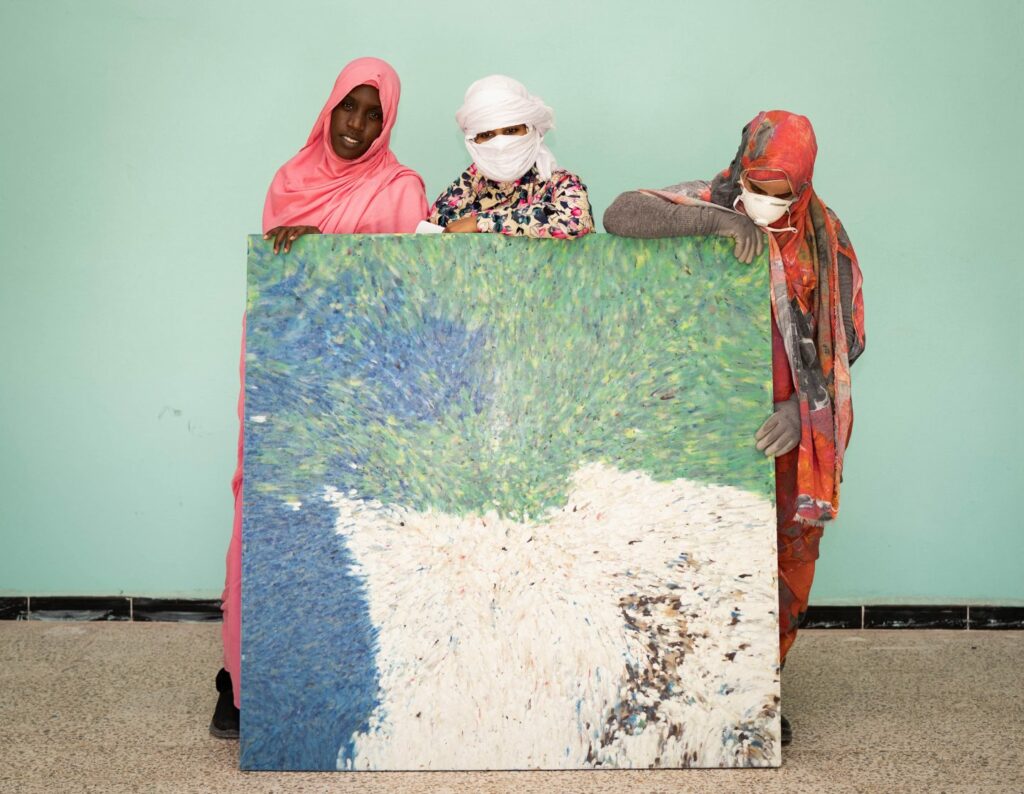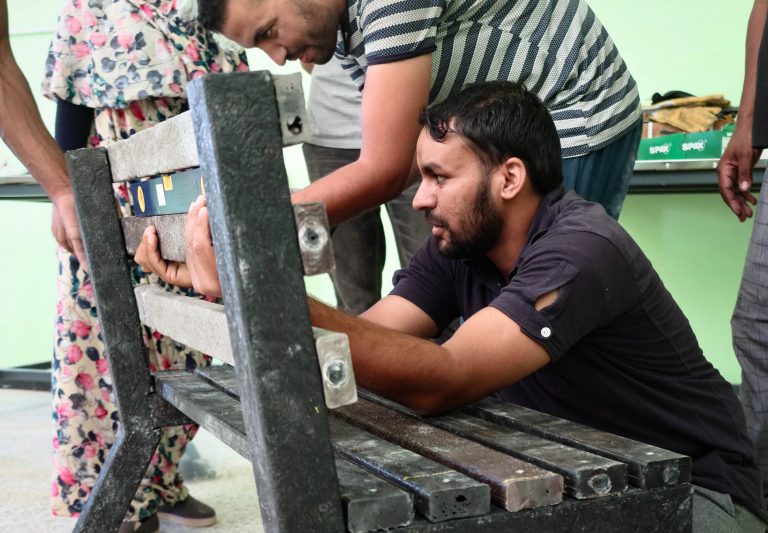Sahrawi refugees recycle plastic: a self-sustaining circular economy in the desert?
Plastic is all around. As per the latest research there are 3.2 million tons of plastic in the ocean, and half a million ton is added to this every year. Although this is significantly lower than previous estimations, it is still far too much. Regardless of numbers, plastic waste’s harms for biodiversity and human health haven’t diminished. Indeed, we have all seen at some point in our social media feed those disheartening images of mountains of (plastic) waste or the so-called ‘plastic soup’ floating around the ocean – usually in a remote location far away from our cities or villages, if we happen to live in the global North. That’s another important part of the issue. According to the report A Neocolonial Plastics Scandal by Dutch NGO Plastic Soup Foundation, despite international legislation, the export of plastic waste to non-Western countries by the European Union – led by the Netherlands – followed by the United States and Japan, would have risen significantly in 2021. The receivers are mainly southeast asian countries such as Indonesia, Vietnam and Malaysia, that lack the resources to properly process those huge flows of global waste. Over half of it is then mismanaged, dumped and burned in the open, releasing harmful substances and residual microplastics that pollute fields and surface waters.

With this background in mind, it’s only a bit suprising – but not that much, then- the idea of mountains of plastic waste in the middle of a desert. This is the case of the Sahara, although here this is mostly due to the isolated location of its Sahrawi refugees camps, in continuous provisionality for the last (almost) 50 years. In 1975, the first Sahrawi families arrived in the Tindouf (Algeria) settlements. They were fleeing the armed conflict that arised in Western Sahara after Spain’s withdrawal from its former colony, leaving it to its fate. Although the settlements were supposed to be temporary, little progress has been made in the last decades for a political agreement to facilitate the refugee’s return. In the meantime, waste is being generated by the almost 100000 people living in the Sahrawi camps. With the absence of infrastructures to deal with detritus, it is incinerated in the open desert. To address the issue, and to provide some economic activity to the completely aid-dependant area, the UN’s refugee agency (UNHCR) has partnered with the global DIY recycling movement Precious Plastic. The goal is to offer Sahrawi refugees a chance to create a self-sustaining circular economy from the plastic waste they produce. A plastic recycling center was built by the UN in the end of 2021, while Precious Plastic provided the necessary equipment and offered training to the Sahrawi settlers. They quickly learned to sort and process the different plastic materials, and are the ones running the specialized machinery. While the UN pays a group of refugees to work at the recycling center, the goal is for them to own part of the property. The recycled plastic products would then be sold to organizations that provide desert communities with furniture and small articles.

A similar system is being implemented in Northern France to tackle the environmental impact of informal refugee camps. It could probably be also of help in the communities receiving global North’s plastic waste exports. However, let’s not forget that recycling should be a complementary action to reducing the source of waste. We are all ‘flatmates’ in the planet, and our trash -including from recycled goods- can not be hidden under the carpet: even if sent far away, it’s still very real, particularly for our seemingly remote ‘planet-mates’.
Credit :Whatdesigncando.com / Precious Plastic
Credit :Whatdesigncando.com / Precious Plastic
Credit :Whatdesigncando.com / Precious Plastic
